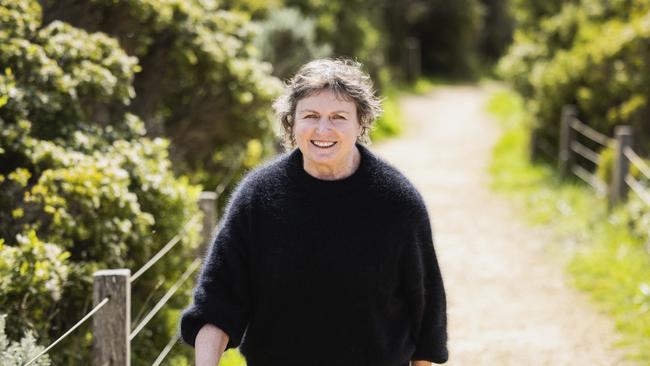Shine Awards 2022: Mansfield agriculture educator Julie Aldous nominated
Teacher Julie Aldous realised the ag industry would soon be without a workforce unless she took farming lessons out of the classroom.
Julie Aldous is a nominee in The Weekly Times Shine Awards, supported by Harvey Norman. If you know a rural woman who deserves recognition, nominate her in the form below and learn more about the Shine Awards here.
Julie Aldous was drafting cattle on her Mansfield farm when she had a light-bulb moment.
“At that time I was teaching English to year seven (at Mansfield Secondary School) and realised only one student in the class came from a farm,” Julie says.
“That’s when it occurred to me: there’s no one to do farm jobs like drafting.
“Older farmers assumed they would get workers after school, but this wasn’t happening and you can’t learn drafting from a book. I thought ‘my goodness we are in trouble’.”
That was back in 2008 and Julie’s life has been devoted to the cause of educating secondary school kids about farm skills ever since.

The following year she established a model for years nine and 10 students at the school that saw students once a week visit partnered farms or businesses to learn skills such as milking goats, drenching sheep, fencing and planting trees.
The students all gained a certificate II in agriculture and the 30-plus farms and businesses benefited as well.
“A number of the farms ended up being employees to the kids,” Julie said.
“In the five years before I started the course there were two students from Mansfield Secondary who went on to study agriculture.
“But the five years after the course 26 per cent of students, or about five per year, went on to do agriculture at university or a certificate III in agriculture.”
So successful was the model – which continues at the school to this day – that in 2014 Julie was awarded a RIRDC Rural Women’s Award $10,000 bursary to develop the project further.
The following year she did just that, taking the model across the state, only this year retiring but still working as an on-call consultant, speaking at meetings and conferences.
“After the award people saw the article (featured at that time in The Weekly Times) and would contact me and I’d explain the program. I spoke to schools from the Wimmera to Gippsland, working with them to set up similar models, because no two schools are the same.”
For the past three years – thanks to more than $1 million in Regional Development Victoria funding – Julie has been part of a team working with North East Victorian Local Learning and Employment Networks to spread the model.
She said from 2018 to 2022 about 20 education sites in North East Victoria took part in the program, which was also expanded to health care because “it’s a major employer across the regions and if you don’t have a good health service you lose your community”.
She explained two years were unfortunately interrupted by Covid, but nevertheless the “desire and support from industry has been overwhelming”.
“Rural people are crying out for schools to establish this program, but we’ve found that schools are constrained in many ways, especially around funding,” she said.
“One significant problem is that year nine students – when schools have space in the curriculum – cannot access education department funding to do certificate II. They can do it, but they don’t get funding for it and that’s a significant barrier.
“So now my key message is that year nine levels need that funding. If you leave certificate learning until VCE you are already creating a divide between the students who will go to university with no industry experience and students who want to go straight into industry.”
Julie – who now has a 40ha property near Mansfield – added that in parallel it was also critical for schools and teachers to have an agricultural background in order to push for these skills.
“To understand the possibilities of agricultural education you have to understand the education system,” she said.
“I’ve had some success because I’ve known both farms and education and you’d be surprised how infrequently that happens.”
She said it was in every rural town’s best interests to ensure the next generation of workforce.
“For every person qualified out of university there are six agricultural job vacancies and a lot of them are taken by city students,” she said.
“If you train a rural student they are more likely to return to a rural area. Education in agriculture provides much more than employees.”




